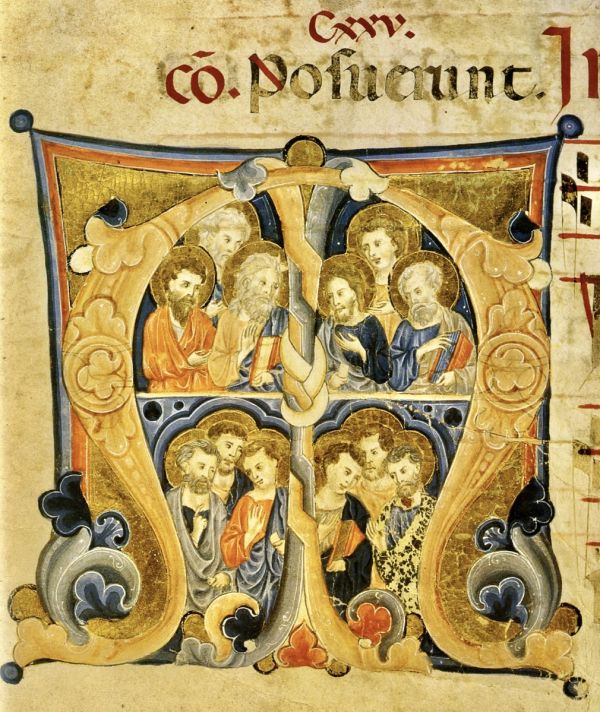In the concluding part of chapter seventeen of John, Jesus repeatedly returns to the theme of unity, asking the Father for his own that «all the people may be One» (Jn 17:21).
Francis had always cherished the milestone value of unity, of concord with both his brothers and fellow citizens.
There is a passage in the Sources, in the Second Life of Celano, which highlights how the Poor Man, while preaching to the people of Perugia, predicts civil war and praises concord.
"A few days later the Father came down from the aforesaid cell and addressing the brothers present said in a voice of tears:
"The Perugini have done much harm to their neighbours* and their hearts have grown proud, but to their ignominy. For God's vengeance draws near and he already has the sword in his hand".
He waited a few days, then in fervour of spirit, headed for Perugia.
The friars could deduce with all certainty that he had had a vision in his cell.
Having arrived in Perugia, he began to speak to the people who had gathered.
And as the knights prevented the Word of God from being heard, jousting, according to custom, and performing shows of arms, the Saint, greatly grieved, apostrophised them:
"O wretched and foolish men, who reflect not and fear not the punishment of God!
But listen to what the Lord is announcing to you through this poor man.
The Lord has raised you above those around you, and for this you should be more benevolent towards your neighbour and more grateful to God.
And instead, ungrateful for so much benefit, you attack your neighbours with weapons in your fist, kill them and plunder them.
Well, I say to you:
you shall not get away with it! The Lord to your greater punishment will bring you to ruin with a fratricidal war, which will see you rise up against one another.
You will be taught out of indignation, for you have learned nothing from benevolence.
Shortly afterwards strife broke out*: people took up arms against their neighbours, the commoners raged against the knights and these, in turn, against the people:
Such was the atrocity and slaughter, that even the neighbours, who had also been harmed, felt pity.
Punishment well deserved! They had turned away from the One and Supreme God: it was inevitable that not even among them would unity remain.
There can be no stronger bond for a state than a convinced love for God, united to a sincere faith without hypocrisy' (FF 622).
And in the Canticle of the Creatures here is a very significant expression, which ties in well with what has been said:
«beati quelli ke trovarà ne le Tue sanctissime voluntati, / ka la morte seconda no ‘L farrà male» (FF 263).
[Blessed are those whom Thou wilt find in Thy holy will,/ so that the second death will do them no harm].
Francis worked concretely so that the Unity, for which Christ had died on the cross, might dwell among his sons and daughters.
* It was fought between Assisi and Perugia on several occasions from 1202 to 1209.
Francis seems here to hint at his imprisonment.
* The civil strife flared up several times: in 1214, in 1217 and finally in 1223-1225, and ended with the exile of the nobles.
Thursday of the 7th wk. in Easter (Jn 17:20-26)


